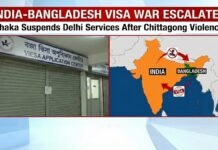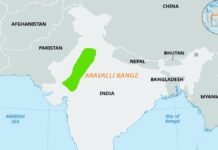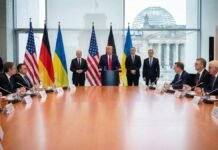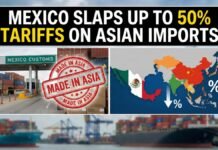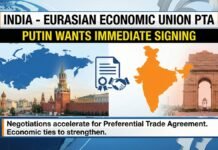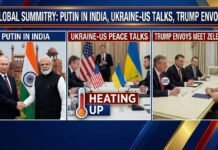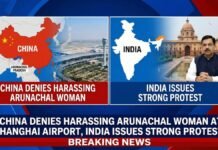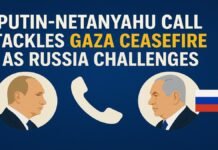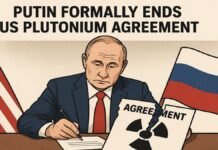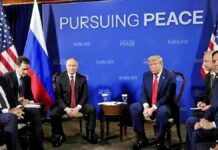
Key Points
- NATO Secretary General Mark Rutte has voiced grave concerns over the risk of a Third World War if China and Russia coordinate military aggression.
- Rutte warns that a simultaneous Chinese attack on Taiwan and Russian assault on NATO countries could trigger global devastation.
- Such a scenario could distract Western powers, allowing China to consolidate its influence in the Pacific.
- The NATO chief highlighted the heightened risk of nuclear conflict if both adversaries escalate together.
- Rutte’s remarks underscore mounting anxieties about the evolving global security landscape.
New Delhi: NATO Secretary General Mark Rutte has sounded a stark warning about the growing potential for a global conflict, expressing deep unease over the possibility of coordinated military action by China and Russia. In recent statements, Rutte outlined a scenario in which Chinese President Xi Jinping and Russian President Vladimir Putin could jointly launch aggressive operations, pushing the world to the brink of a catastrophic war.
The China-Russia Axis: A Dangerous Military Gambit
Rutte’s concerns center on the possibility that China could initiate an attack on Taiwan while Russia simultaneously targets NATO member states in Europe. This dual-front strategy, he cautioned, would force Western powers to divide their attention and resources between two critical theaters Asia and Europe.
- Taiwan as a Flashpoint: If China moves militarily against Taiwan, it would likely draw the United States and its allies into a major confrontation in the Indo-Pacific.
- Russian Threat to NATO: At the same time, a Russian offensive against NATO’s eastern flank could trigger the alliance’s collective defense mechanism, Article 5, escalating the conflict across the continent.
Strategic Distraction and Global Consequences
Rutte warned that such a coordinated move could be designed to stretch Western military capabilities thin, shifting focus away from the Pacific and giving China a strategic advantage. The scenario, he argued, would not only destabilize global security but could also embolden other authoritarian regimes to pursue aggressive policies.
The Nuclear Dimension: Escalation Risks
Perhaps most alarming in Rutte’s analysis is the specter of nuclear escalation. He cautioned that if China and Russia both take aggressive steps, the likelihood of a nuclear exchange either by miscalculation or as a last resort would rise dramatically. The devastation from such a conflict would be unprecedented, affecting not just the warring states but the entire world.
NATO’s Response and the Global Security Outlook
Rutte’s comments reflect growing anxiety within NATO and among Western policymakers about the evolving partnership between China and Russia. Both countries have deepened military cooperation in recent years, conducting joint exercises and expressing shared opposition to Western influence. The NATO chief’s warning serves as a call for vigilance, unity, and preparedness among allied nations.
Table: Potential Scenarios and Global Risks
| Scenario | Immediate Impact | Long-Term Risk |
|---|---|---|
| China attacks Taiwan | US and allies drawn into Indo-Pacific conflict | Destabilization of Asia-Pacific, risk of wider war |
| Russia attacks NATO states | NATO invokes Article 5, war in Europe | Escalation to global conflict |
| Simultaneous China-Russia aggression | Western powers stretched thin | Increased risk of nuclear exchange |
NATO Secretary General Mark Rutte’s warning highlights the precarious state of global security as China and Russia strengthen their strategic partnership. The possibility of coordinated military action poses a grave threat, with the potential to ignite a conflict of unprecedented scale. As tensions simmer in both Europe and the Pacific, the international community faces a critical test of unity, deterrence, and diplomatic resolve.









